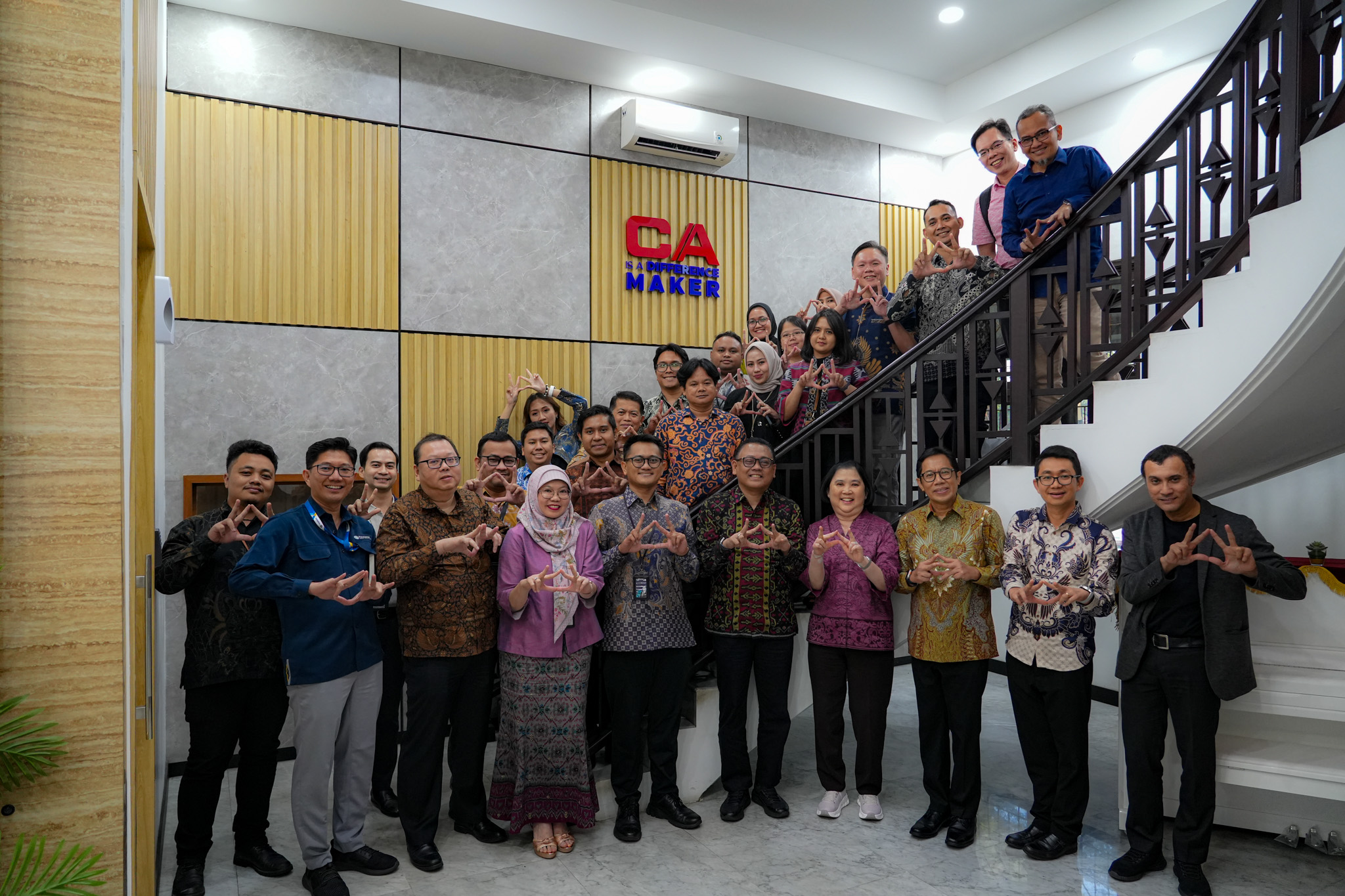Berita IAI
Navigate to:
Strengthening PAO–PAIB Connectivity: Building the Future of Business Sustainability
25 September 2025 - Siaran Pers

The accounting profession is at a crossroads. Across the globe - and certainly in Indonesia - accountants are being asked to go beyond compliance and reporting, stepping into roles that shape how businesses adapt to digital transformation, respond to regulatory change, and embrace sustainability. This shift is no small challenge. It requires new skills, new ways of thinking, and stronger collaboration across professional communities.
This is precisely why Ikatan Akuntan Indonesia (Institute of Indonesia Chartered Accountant/IAI), through its Professional Accountants in Business (PAIB) compartment, recently convened a Focus Group Discussion (FGD) under the theme “Strengthening PAO–PAIB Connectivity: Collaboration for Business Sustainability and Competitiveness.” The forum brought together senior accountants, corporate partners, and business leaders to address a question that resonates across the globe: How can professional accountancy organizations (PAOs) and professional accountants in business (PAIBs) work more effectively together to strengthen corporate resilience and support sustainable growth?
Why Connectivity Matters
At first glance, PAOs and PAIBs may seem like two different worlds: one focused on standards, education, and advocacy; the other immersed in daily business operations. Yet their roles are deeply connected. PAIBs rely on PAOs for training, ethical guidance, and frameworks to navigate an evolving business landscape. PAOs, in turn, depend on the real-world insights of PAIBs to ensure the profession stays aligned with business and societal needs.
The FGD highlighted how this connectivity becomes especially critical in the era of sustainability reporting. Many companies still struggle with fragmented data. Unlike financial information, which tends to be consolidated, sustainability-related data - covering carbon emissions, workforce practices, and supply chains - often sits across departments without a clear integration mechanism. With sustainability reporting requirements projected to become stricter by 2027, this fragmentation poses serious risks.
The message from participants was clear: accountants must be active drivers of integration, helping businesses ensure that sustainability information is reliable and decision-useful. But for this to happen, the profession itself must evolve, and PAO–PAIB collaboration is key.
From Compliance to Strategy
Professor Lindawati Gani, a member of IAI’s National Council and the IFAC PAIB Advisory Group, underscored this shift. She noted that accounting should not be perceived as an administrative function. Instead, it must be recognized as a strategic pillar for decision-making. “Buy-in from top management is critical,” she explained. “Without executive-level support, sustainability transformation risks becoming a box-ticking exercise rather than a true competitive strategy.”
This perspective echoes global discussions on the future of the profession. If accountants are to help businesses thrive amid volatile markets and rising transparency demands, they must be positioned not only as compliance officers but as trusted advisors who bridge financial and non-financial performance.
The PAO Role in Driving Change
So, how can PAOs like IAI enable this transformation? Several pathways emerged from the discussion.
- Capacity building. PAOs must design programs that equip PAIBs with the skills to address environmental, social, and governance (ESG) reporting requirements. This extends beyond traditional accounting competencies to include sustainability frameworks, integrated reporting, and assurance of non-financial data.
- Collaboration. Sustainability challenges demand perspectives from IT, data science, and environmental management. By fostering cross-disciplinary collaboration, PAOs can ensure that accountants are part of a broader ecosystem of problem-solvers.
- Communication. The profession must be seen by the public, and especially by younger generations, as dynamic and meaningful. Programs such as IAI Goes to School instill values of accountability and sustainability early, while modern communication tools like newsletters and infographics help make complex issues accessible.
- Global engagement. By benchmarking against international practices and contributing to global forums, PAOs ensure their members remain relevant and competitive. For IAI, this means supporting Indonesia’s long-term vision of Indonesia Emas 2045 while positioning Indonesian accountants as active players in the global profession.
Looking Ahead
The FGD’s recommendations reflect these priorities: broaden ESG-focused capacity development, foster cross-disciplinary collaboration, refresh communication strategies, and expand outreach to younger generations. Together, these steps aim to ensure accountants remain trusted, adaptive, and impactful.
At its core, this initiative is about redefining the profession’s role in society. Accountants have always been guardians of financial integrity. Today, they are also being called to safeguard the sustainability and competitiveness of businesses in a rapidly changing world.
For IAI, strengthening PAO–PAIB connectivity is not just an internal agenda. It is a contribution to national development and a message to the global community that Indonesian accountants are ready to lead.
A Question for the Future
As the profession evolves, the challenge is not only to keep pace with change but to shape it. PAOs and PAIBs must work hand in hand to bridge data gaps, integrate sustainability into decision-making, and inspire the next generation to see accounting as both impactful and future-oriented.
The question, then, is this: How will we, as a profession, seize this moment to transform from record-keepers into trusted advisors who help build a sustainable future for business and society?
